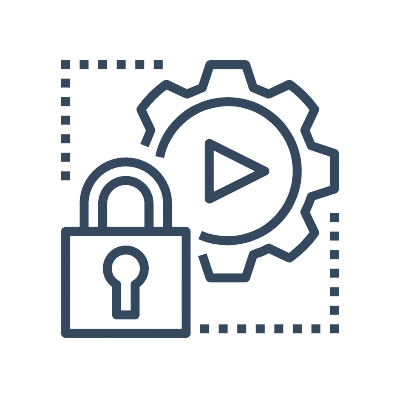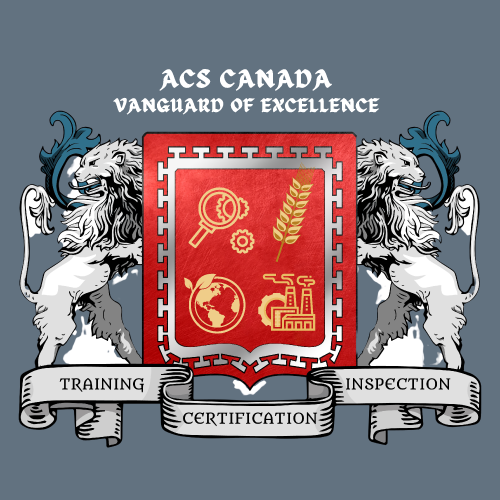ISO 22316 Certification

SECURITY AND RESILIENCE
WHAT IS SECURITY AND RESILIENCE
Organizational resilience is an organization's ability to absorb and adapt in a changing environment in order to deliver on its objectives and survive and prosper. More resilient businesses can foresee and respond to dangers and opportunities that arise as a result of abrupt or gradual changes in their internal and external environments. Increasing resilience may be a strategic corporate aim, and it is the result of solid business practices and effective risk management. The resilience of an organization is influenced by a unique interaction and combination of strategic and operational factors. There is no absolute metric or clear aim; organizations can only be more or less resilient.
Commitment to enhanced organizational resilience contributes to:
-An improved ability to anticipate and address risks and vulnerabilities;
-Increased coordination and integration of management disciplines to improve coherence and performance;
-A greater understanding of interested parties and dependencies that support strategic goals, and objectives.
RESILIENCE PRINCIPALS
The principles serve as the foundation for developing, implementing, and evaluating a framework and strategy to improve organizational resilience.
An organization’s resilience:
a) is enhanced when behavior is aligned with a shared vision and purpose;
b) relies upon an up-to-date understanding of an organization’s context;
c) relies upon an ability to absorb, adapt and effectively respond to change;
d) relies upon good governance and management;
e) is supported by a diversity of skills, leadership, knowledge and experience;
f) is enhanced by coordination across management disciplines and contributions from technical and scientific areas of expertise;
g) relies upon effectively managing risk.
WHAT IS THE MANAGEMENT DISCIPLINES
Management disciplines that can support organizational resilience are:
Asset management, business continuity management, crisis management, cyber security management; communications management; emergency management; environmental management; facilities management; financial control; fraud control; governance; health and safety management; human resources management; information security management; — information, communications and technology; physical security management; quality management; risk management; — supply chain management; strategic planning.
Training at ACS CanadaACS employs accelerated learning methods to ensure a comprehensive grasp of all certificates. Our approach involves contextualizing your learning through a wide array of options, including classroom instruction, workshops, as well as interactive and online sessions.
ISO 22316 Certification Training - 1

Business Decision Analysis Course
The aim of this course is to define and teach the steps of the decision-making process, define the different roles played by qualitative and quantitative approaches to managerial decision making. Course Content: Decision-making process, Perform cost-revenue-profit analysis, and calculate break-even values, mathematical models for calculating break-even, maximization of profit, and minimization of costs with given […]
More About This CourseISO 22316 Certification Training - 2

Business Statistics and Data Analysis
Every year humans are producing more and more data. The central challenge businesses and individuals face making sense of all this data we are now confronted with. This class will help introduces you to essential tools for making sense of data. Course Content: Introduction to Statistics, Descriptive Statistics (Part 1 – Tables and Graphs), Descriptive […]
More About This CourseISO 22316 Certification Training - 3

Quantitative Methods for Business Management
This course teaches best practice quantitative methods used in conventional and sustainable business settings
More About This CourseISO 22316 Certification Training - 4

ISO 22316 Requirements
This course aims to provide delegates with the knowledge and skills required to understand requirements and documentation against the requirements of ISO 22316, Business Security and resilience. Assessment: MCQ based Assessment to Pass the Course and obtain your qualification of requirements and documentation Prior Knowledge Requirements: Risk Management. CURRICULUM ISO 22316 BASICS AND REQUIREMENTS KNOWLEDGE […]
More About This CourseISO 22316 Certification Training - 5
QUALITY FUNCTION DEPLOYMENT

QFD Training Course
This course aims to teach the principles and practices of Quality Function Deployment, QFD.
More About This CourseISO 22316 Certification Training - 6
STRATEGIC THINKING

STRATEGIC THINKING
Now a day , Strategic thinking is a very important practical concept, in this course we will get to know the concepts and stages of strategic thinking. Strategic Thinking is a mental synthesis process creating an integrated view of the business in mind, through creativity and intuition “Mintzberg”. Course Content: Strategic thinking definitions: Mintzberg, Porter, […]
More About This CourseISO 22316 Certification Training - 7
Design of Experiment

Design of Experiment (DOE)
Design of Experiment (DOE) is a powerful statistical technique for improving product or process designs and solving process or production problems. DOE defines control changes to input variables in order to find cause and effect relationships with a minimum sample size. When analyzing a process, experiments are often used to evaluate which process inputs have […]
More About This CourseISO 22316 Certification Training - 8
BUSINESS CONTINUITY

ISO 22301 – Requirements
This course aims to provide delegates with the knowledge and skills required to understand requirements and documentation against the requirements of BCMS-ISO 22301.
More About This CourseISO 22316 Certification Training - 9
QMS REQUIREMENTS

ISO 9001 – Requirements
The aim of this course is to provide delegates with the knowledge required to understand QMS requirements and documentation .
More About This Course
